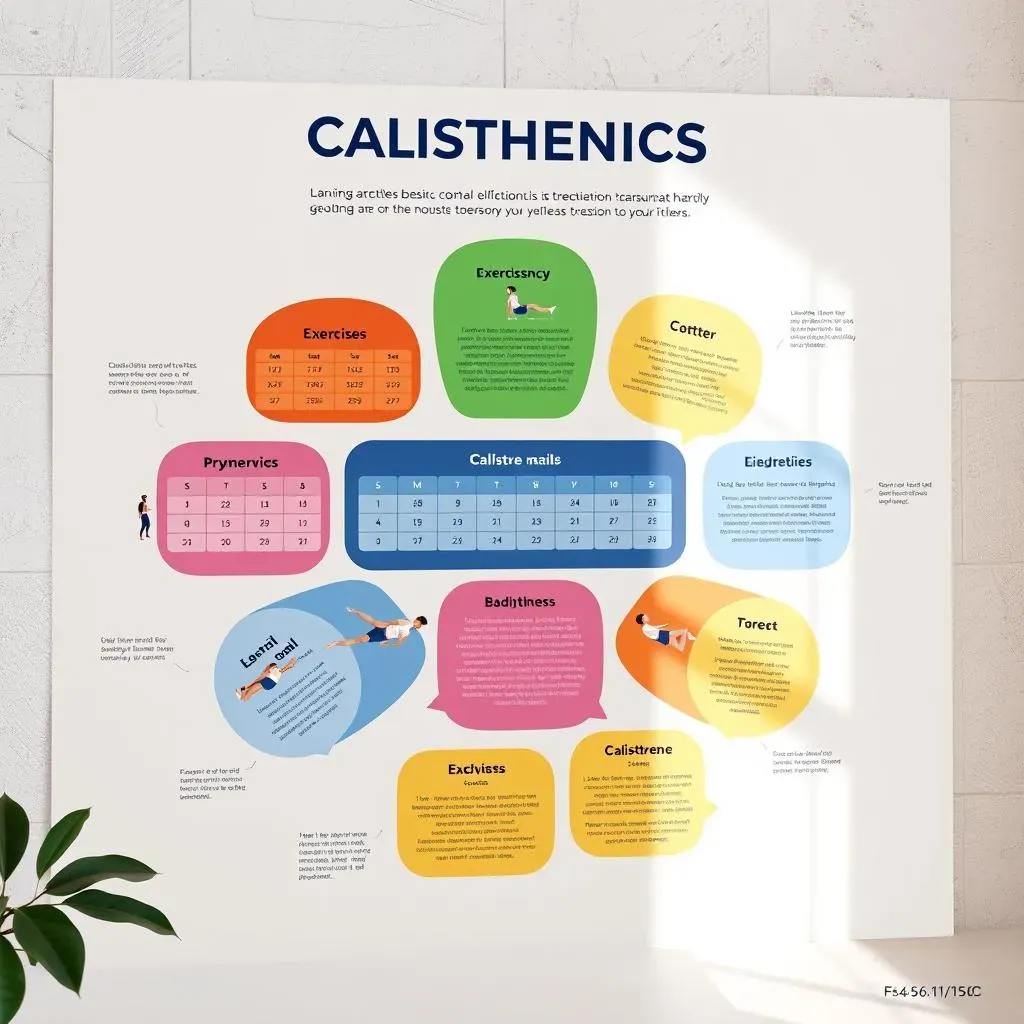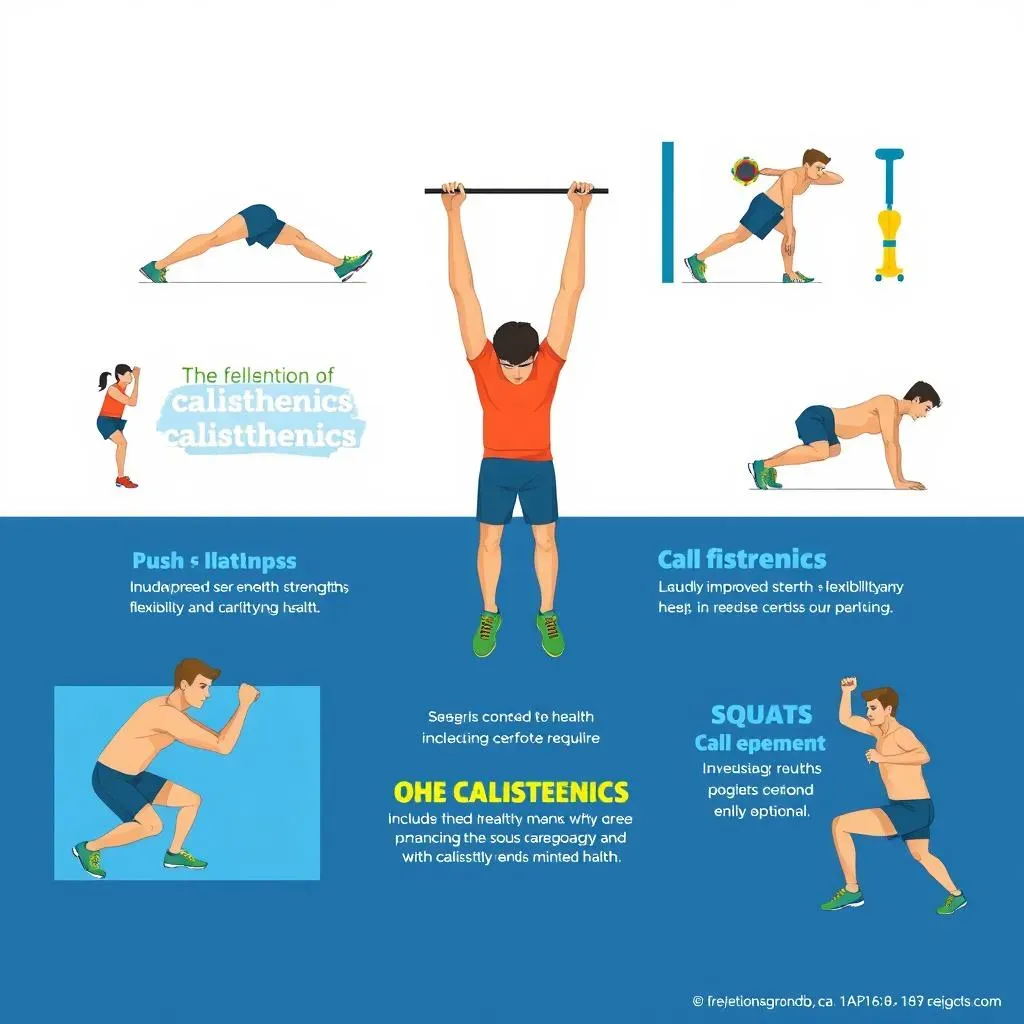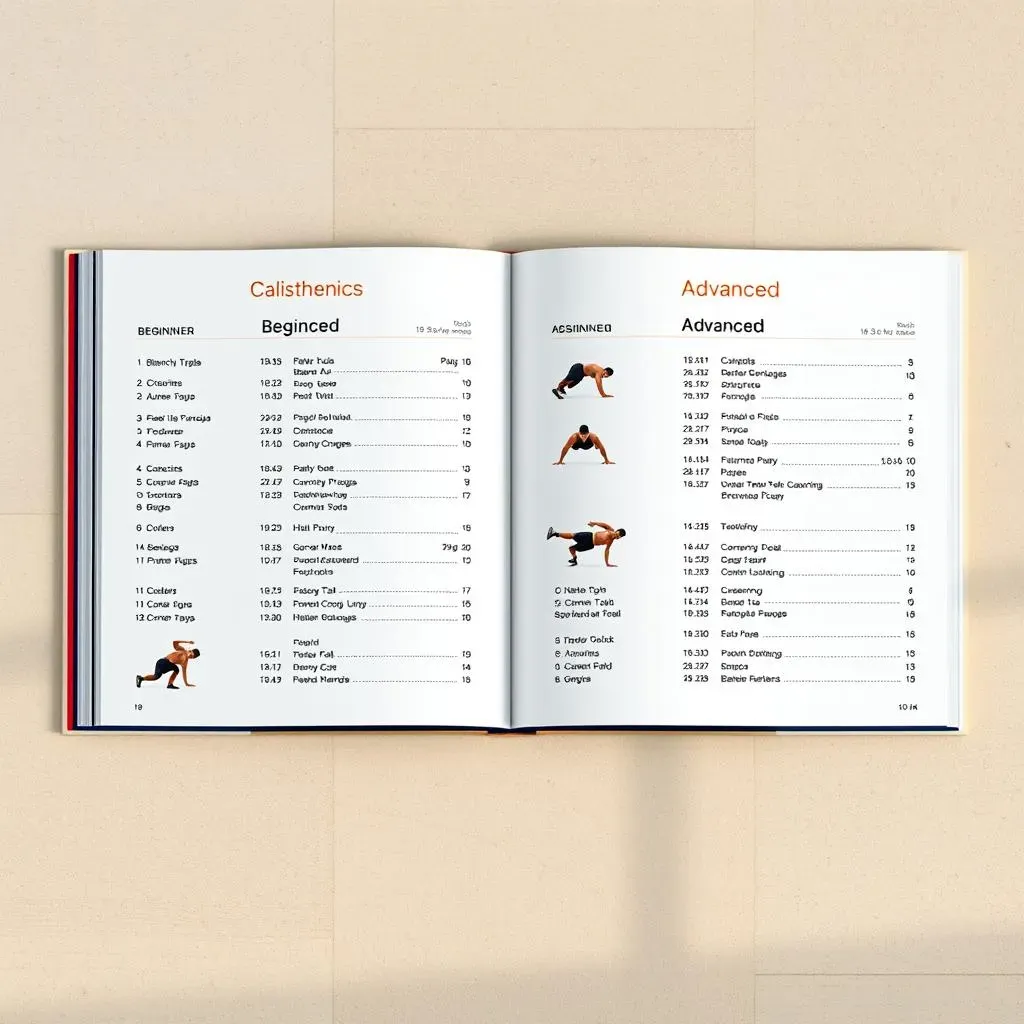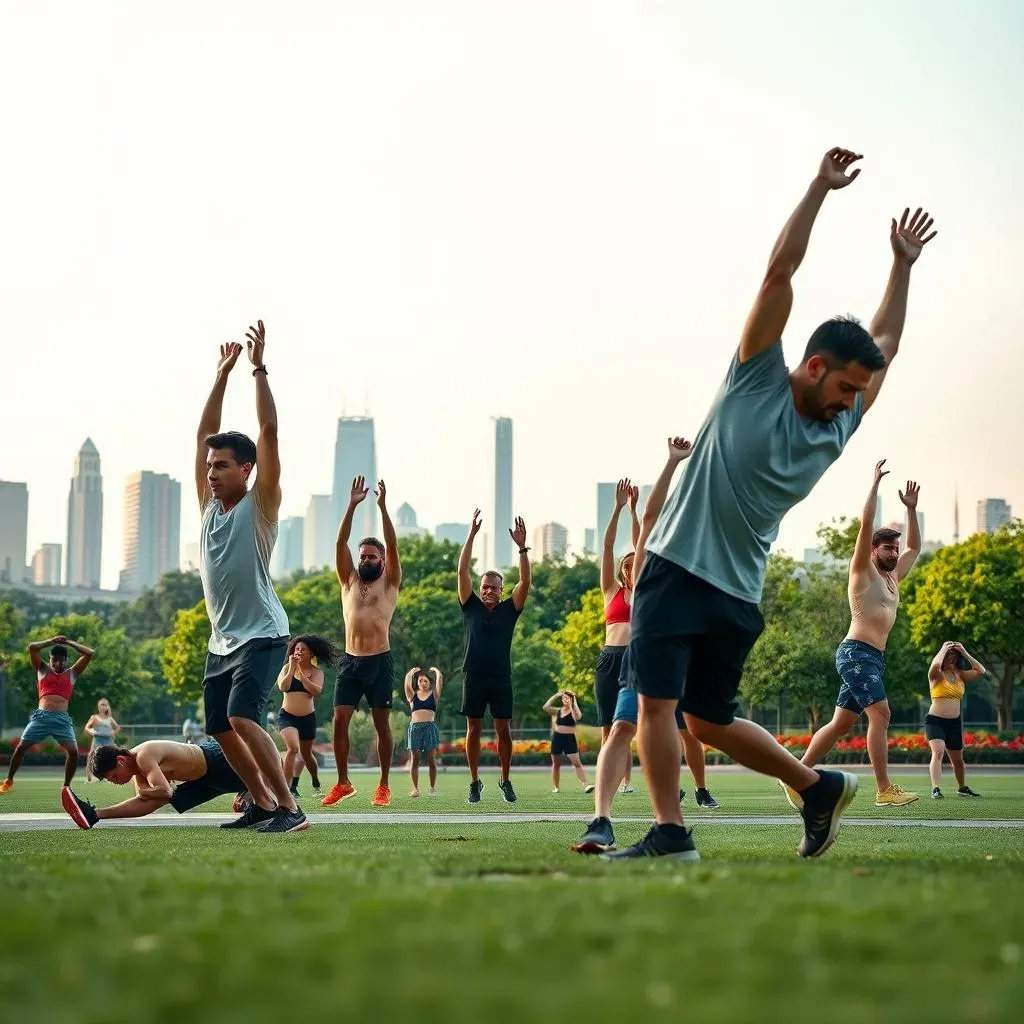Table of Contents
Are you ready to unlock the full potential of your body without relying on expensive gym memberships or equipment? Calisthenics exercises are a timeless and effective way to improve your strength, flexibility, and overall fitness. With a calisthenics exercises list tailored to your fitness level, you can embark on a journey to achieve your health and wellness goals. Whether you're a beginner or an advanced athlete, calisthenics offers a wide range of exercises that engage multiple muscle groups and promote core stability and control. From push-ups and pull-ups to handstand push-ups and parallel bar dips, the possibilities are endless. In this article, we'll delve into the world of calisthenics, exploring its benefits, providing a comprehensive calisthenics exercises list, and offering tips on how to incorporate these exercises into your workout routine for maximum results. So, let's dive in and discover the power of bodyweight training!
Introduction to Calisthenics Exercises List

Introduction to Calisthenics Exercises List
What are Calisthenics Exercises?
Calisthenics exercises are a form of strength training that uses body weight as resistance. They are a great way to improve overall fitness, increase strength, and enhance flexibility without the need for specialized equipment or a gym membership. Calisthenics exercises engage multiple muscle groups simultaneously, promoting core stability and control. Examples of calisthenics exercises include push-ups, pull-ups, squats, lunges, and planks. These exercises can be modified to suit different fitness levels, making them accessible to everyone from beginners to advanced athletes.
One of the primary benefits of calisthenics is its convenience. You can perform these exercises anywhere, whether at home, in a park, or during travel. This makes calisthenics an ideal choice for individuals with busy lifestyles or those who prefer not to invest in gym memberships. Moreover, calisthenics exercises are often low-impact, reducing the risk of injury compared to high-impact activities like running or jumping.
Exercise | Muscle Groups Worked | Difficulty Level |
|---|---|---|
Push-up | Chest, Shoulders, Triceps | Beginner |
Pull-up | Back, Arms | Advanced |
Squat | Legs, Glutes | Beginner |
- Improved strength and flexibility
- Enhanced core stability and control
- Increased calorie burn and weight management
Getting Started with Calisthenics Exercises
Starting a calisthenics routine can seem overwhelming, especially for those new to exercise. However, with a little guidance, anyone can begin their calisthenics journey. It's essential to start with exercises that match your current fitness level. Beginners can begin with modified versions of exercises, such as knee push-ups or assisted pull-ups, and gradually progress to more challenging variations as they build strength and confidence.
Proper form and technique are crucial when performing calisthenics exercises. Poor form can lead to injury, so it's vital to learn the correct technique for each exercise. Online tutorials, fitness classes, or working with a personal trainer can help you master the correct form and ensure a safe and effective workout.
Exercise | Target Muscle Groups | Tips for Proper Form |
|---|---|---|
Push-up | Chest, Shoulders, Triceps | Keep your back straight, engage your core, and lower your body until your chest almost touches the ground |
Pull-up | Back, Arms | Hang from the bar with your hands shoulder-width apart, engage your latissimus dorsi, and pull yourself up until your chin clears the bar |
Squat | Legs, Glutes | Keep your back straight, lower your body down until your thighs are parallel to the ground, and push through your heels to return to standing |
- Start slow and progress gradually
- Focus on proper form and technique
- Listen to your body and rest when needed
Benefits of Incorporating Calisthenics Exercises into Your Workout Routine

Benefits of Incorporating Calisthenics Exercises into Your Workout Routine
Incorporating calisthenics exercises into your workout routine can have a transformative impact on your overall fitness and well-being. One of the most significant benefits of calisthenics is its ability to improve strength. By using your body weight as resistance, you can build muscular endurance and increase your overall strength. Calisthenics exercises like push-ups, pull-ups, and squats engage multiple muscle groups simultaneously, promoting balanced strength development.
Another benefit of calisthenics is its flexibility. Unlike weightlifting, which often isolates specific muscles, calisthenics exercises require full-range movements that enhance flexibility and mobility. For example, exercises like lunges and leg swings help improve hip and leg flexibility, while movements such as arm circles and shoulder rolls increase shoulder mobility.
Exercise | Muscle Groups Worked | Benefits |
|---|---|---|
Push-up | Chest, Shoulders, Triceps | Improves upper body strength and endurance |
Pull-up | Back, Arms | Builds lat strength and overall upper body power |
Squat | Legs, Glutes | Enhances lower body strength and flexibility |
- Improved muscular strength and endurance
- Enhanced flexibility and mobility
- Increased calorie burn and weight management
- Reduced risk of injury compared to high-impact activities
Calisthenics exercises also contribute to improved cardiovascular health. Exercises like burpees, jump squats, and mountain climbers elevate your heart rate and increase blood flow, providing an effective cardio workout. Furthermore, calisthenics can help with weight management by burning calories and building lean muscle mass.
One of the most significant advantages of calisthenics is its convenience. You can perform these exercises anywhere, eliminating the need for a gym membership or specialized equipment. This makes calisthenics an ideal choice for individuals with busy lifestyles or those who prefer to work out in the comfort of their own homes or outdoors.
Additionally, calisthenics promotes mental toughness and discipline. Pushing yourself to complete challenging exercises and sets helps build resilience and mental strength, which can translate to other areas of life. The sense of accomplishment after mastering a difficult exercise or reaching a new personal best can boost your confidence and motivation to continue your fitness journey.
Moreover, calisthenics exercises can be modified to suit different fitness levels. Beginners can start with easier variations of exercises, such as knee push-ups or assisted pull-ups, and gradually progress to more challenging versions as they build strength and confidence. This scalability makes calisthenics an inclusive and effective way to improve fitness for people of all ages and abilities.
Exercise Variation | Difficulty Level | Target Muscle Groups |
|---|---|---|
Knee Push-up | Beginner | Chest, Shoulders, Triceps |
Assisted Pull-up | Beginner | Back, Arms |
Single-leg Squat | Advanced | Legs, Glutes |
- Improved mental toughness and discipline
- Enhanced scalability for different fitness levels
- Increased convenience and accessibility
- Boosted confidence and motivation
Calisthenics Exercises List for Beginners and Advanced Athletes

Calisthenics Exercises List for Beginners and Advanced Athletes
Calisthenics Exercises for Beginners
For those just starting their fitness journey, calisthenics exercises offer a gentle and progressive way to build strength and endurance. Beginners can start with modified versions of exercises that are low-impact and easy to learn. For example, push-ups can be modified to knee push-ups, reducing the strain on the shoulders and chest. Similarly, squats can be modified to bodyweight squats, focusing on proper form and technique without the added weight.
Some excellent calisthenics exercises for beginners include:
Exercise | Muscle Groups Worked | Difficulty Level |
|---|---|---|
Push-up | Chest, Shoulders, Triceps | Beginner |
Squat | Legs, Glutes | Beginner |
Plank | Core, Shoulders | Beginner |
- Start with lower sets and reps, gradually increasing as you build endurance
- Focus on proper form and technique to avoid injury
- Listen to your body and rest when needed
Calisthenics Exercises for Advanced Athletes
For advanced athletes, calisthenics offers a wide range of challenging exercises that can help take their fitness to the next level. Exercises like pull-ups, handstand push-ups, and single-leg squats require strength, control, and precision. These exercises not only build muscular strength but also improve flexibility, balance, and overall athleticism.
Some advanced calisthenics exercises include:
Exercise | Muscle Groups Worked | Difficulty Level |
|---|---|---|
Pull-up | Back, Arms | Advanced |
Handstand Push-up | Shoulders, Triceps | Advanced |
Single-leg Squat | Legs, Glutes | Advanced |
- Focus on proper form and technique to avoid injury
- Incorporate variety in your routine to avoid plateaus
- Challenge yourself with progressive overload to continue making gains
Progressing Your Calisthenics Exercises List
As you become more comfortable with calisthenics exercises, it's essential to progress your routine to continue challenging your muscles and avoiding plateaus. This can be achieved by increasing the number of reps, sets, or difficulty of the exercises. For example, moving from knee push-ups to traditional push-ups, or from assisted pull-ups to unassisted pull-ups.
Additionally, incorporating different variations of exercises can help target specific muscle groups and prevent boredom. For instance, diamond push-ups target the triceps more intensely, while decline push-ups focus on the lower chest.
Exercise Variation | Muscle Groups Worked | Difficulty Level |
|---|---|---|
Diamond Push-up | Triceps, Chest | Intermediate |
Decline Push-up | Chest, Shoulders | Intermediate |
Single-arm Pull-up | Back, Arms | Advanced |
- Gradually increase the difficulty of exercises as you progress
- Incorporate variety in your routine to target different muscle groups
- Listen to your body and only progress when you're ready
Incorporating Calisthenics Exercises into Your Fitness Journey for Maximum Results

Incorporating Calisthenics Exercises into Your Fitness Journey for Maximum Results
Creating a Balanced Calisthenics Routine
Incorporating calisthenics exercises into your fitness journey requires a well-structured approach to ensure you're targeting all major muscle groups and progressively challenging yourself. A balanced routine should include exercises that work your upper body, lower body, and core. For example, you might start with push-ups for your chest and shoulders, pull-ups for your back and arms, squats for your legs and glutes, and planks for your core.
It's also important to vary your routine to avoid plateaus and prevent overuse injuries. For instance, instead of doing the same push-up every workout, try diamond push-ups one day and decline push-ups the next. This will keep your workouts interesting and ensure that you're challenging different muscle fibers.
Exercise | Frequency | Progression |
|---|---|---|
Push-ups | 3 times a week | Increase reps or sets each week |
Squats | 3 times a week | Gradually increase depth or add weight |
Plank | 2 times a week | Hold for longer durations over time |
- Focus on compound exercises that work multiple muscle groups
- Vary your routine to avoid plateaus and prevent overuse injuries
- Gradually increase the intensity and difficulty of exercises
Setting Goals and Tracking Progress
Setting specific, achievable goals is crucial for staying motivated and tracking progress in your calisthenics journey. Whether your goal is to perform a certain number of pull-ups, master a handstand push-up, or increase your overall strength, having a clear objective will help guide your workouts and keep you focused.
Tracking your progress is also vital. Keep a workout log to monitor your reps, sets, and the difficulty of exercises over time. Celebrate your successes and don't be too hard on yourself when you encounter setbacks. Remember, progress may not always be linear, but consistency and patience will ultimately lead to results.
Stay inspired by celebrating small victories along the way, and don't hesitate to seek guidance from fitness professionals or join a calisthenics community for support and motivation.
Goal | Target Date | Progress |
|---|---|---|
Perform 10 pull-ups | 6 weeks | Currently at 5 pull-ups |
Hold a plank for 3 minutes | 3 months | Currently holding for 2 minutes |
Master a handstand push-up | 1 year | Progressing with assisted handstand push-ups |
- Set specific, achievable goals for motivation
- Track progress through a workout log
- Celebrate small victories and seek support when needed
Maintaining Consistency and Overcoming Challenges
Consistency is key when it comes to seeing results from calisthenics exercises. Aim to work out at least 3 times a week, allowing for recovery days in between. It's also important to listen to your body and not push yourself too hard, especially when you're just starting out.
Overcoming challenges is part of the journey. Don't get discouraged if you don't see immediate results or if you struggle with certain exercises. Instead, focus on progressive overload—gradually increasing the difficulty of your workouts to challenge your muscles and stimulate growth.
Remember, calisthenics is a journey, not a destination. With dedication and the right mindset, you'll be on your way to achieving your fitness goals and unlocking the full potential of your body.
Challenge | Solution | Tip |
|---|---|---|
Plateau | Change your routine or increase intensity | Vary exercises to avoid stagnation |
Injury | Rest and modify exercises | Listen to your body and don't rush back |
Lack of Motivation | Set new goals or find a workout buddy | Stay inspired by celebrating small victories |
- Stay consistent with your workout schedule
- Listen to your body and rest when needed
- Focus on progressive overload for continued growth
Conclusion: Unlock Your Fitness Potential with Calisthenics Exercises
In conclusion, calisthenics exercises offer a versatile and effective way to improve your overall fitness and strength without the need for specialized equipment. By incorporating a well-rounded calisthenics exercises list into your workout routine, you can enhance your physical abilities, boost your mental well-being, and achieve a healthier lifestyle. Remember to start with exercises that suit your fitness level and gradually progress to more challenging variations. Stay consistent, listen to your body, and celebrate your progress along the way. With dedication and persistence, you'll be amazed at the transformation your body can undergo through the power of calisthenics. Visit calisthenicsfrance.com for more fitness tips and resources to support your journey.
